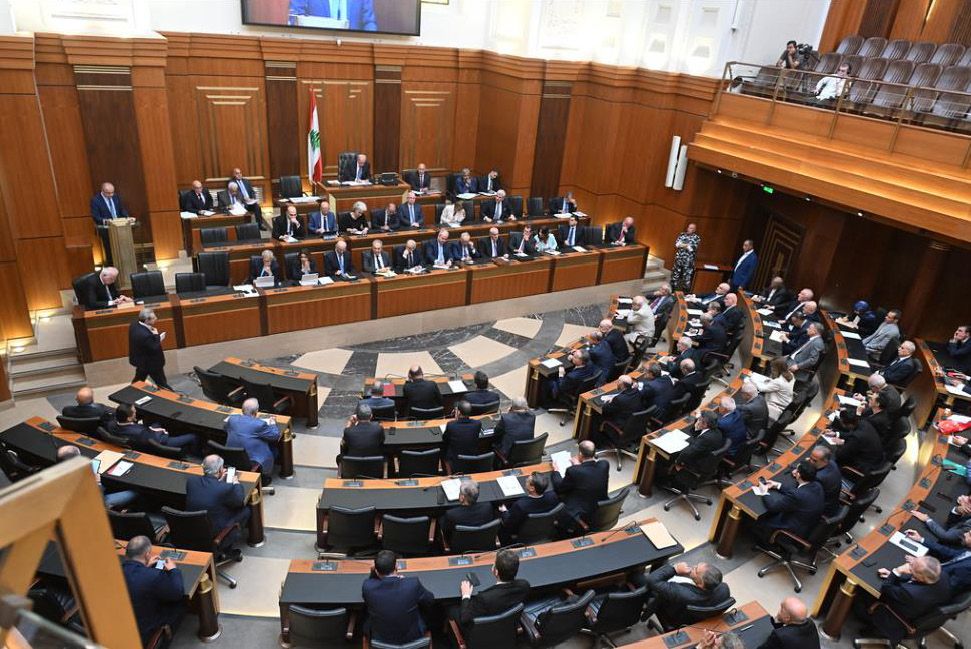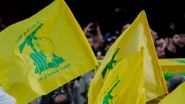
Parliament renewed confidence in Prime Minister Nawaf Salam’s government on Wednesday, as it concluded a two-day session dedicated to the general policy debate. The vote of confidence was called for by MP and leader of the Free Patriotic Movement (FPM) Gebran Bassil.
The majority of the 82 MPs present at the closing session, notably 69 parliamentarians, renewed their confidence in the government, 9 voted against and 4 abstained.
Speaking ahead of the vote and in response to numerous parliamentary interventions, the Prime Minister delivered a dense speech in which he affirmed his willingness to confront the scope of the government's responsibilities, while also acknowledging the limits of its mandate.
“I have listened to the views and interventions of the MPs, and I will take all criticisms seriously,” he assured. “Our responsibility is great, and we are determined to continue our work despite the difficulties and inherited obstacles,” he added.
He noted that while the government has only been in place for a few months, this has not stopped it from working to extend the sovereignty of the state across the entire territory and from implementing a comprehensive disarmament plan.
“Everyone knows that the army has done much to extend the state's sovereignty over its lands south of the Litani River,” he stated, reiterating the government’s commitment to “continue its efforts to extend sovereignty both north and south of the Litani.”
Regarding the issue of Syrian displaced persons, the Prime Minister announced the launch of a plan described as “safe and sustainable” for their return, stressing that it is not merely a declaration of intent but a “clear and irreversible commitment,” as stated in the president’s inaugural address and in the ministerial declaration. In this context, he revealed that “16,000 applications for the return of displaced Syrians have been registered over the past ten days.”
On the domestic front, the Prime Minister acknowledged that “state institutions have failed in their duties” and that government action is facing “obstacles and challenges inherited from the past.” Nevertheless, he asserted, “we renew our commitment and determination to pursue reform and rescue the country.”
He also addressed public sector appointments, defending them as based on the principles of “competence, competition and equality.” On the economic front, Salam reaffirmed that “the government has prioritized the rights of depositors,” emphasizing that their restitution hinges on “establishing transparency and regularity in the banking sector.”
On energy and technology, he mentioned the ongoing negotiations for the construction of gas-powered power plants, as well as the development of the Starlink project. On waste management and local governance, he noted that “the ministry is working—away from fragmentation—to improve sectoral governance,” and added that “the Cabinet is working to update the national solid waste management strategy.”
On the controversial electricity issue, he took a firm tone, “I am convinced that what we will deliver will prove you wrong,” he said in response to accusations of improvisation.
Weapons, Sovereignty and Reforms
The issue of Hezbollah’s weapons took center stage during the session.
MP Ahmad Kheir (National Moderation Bloc) called on holders of illegal weapons to cooperate with the state, saying, “There will be no resurrection of the nation under the duality of arms.”
For his part, opposition MP Michel Douaihy advocated for a clear disarmament plan, complete with a timeline and guarantees, affirming that only “the logic of the state” can truly protect the Lebanese people.
MP Pierre Bou Assi (Lebanese Forces) declared, “Hezbollah says it will not surrender its weapons,” questioning the purpose of the Lebanese Army’s presence. His point was echoed by MP Firas Hamdan, who highlighted the lack of concrete mechanisms for weapons removal.
Governance and transparency also featured prominently in the debate. Several MPs questioned the absence of a coherent economic vision, denounced clientelist practices, the paralysis of the judiciary and raised concerns over depositors’ rights.



Comments